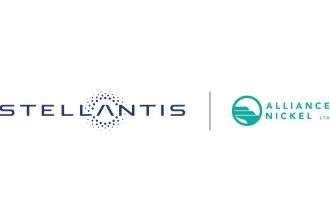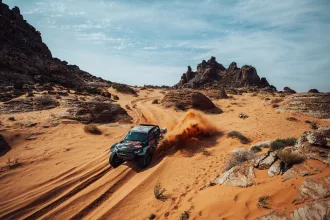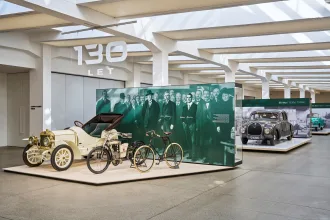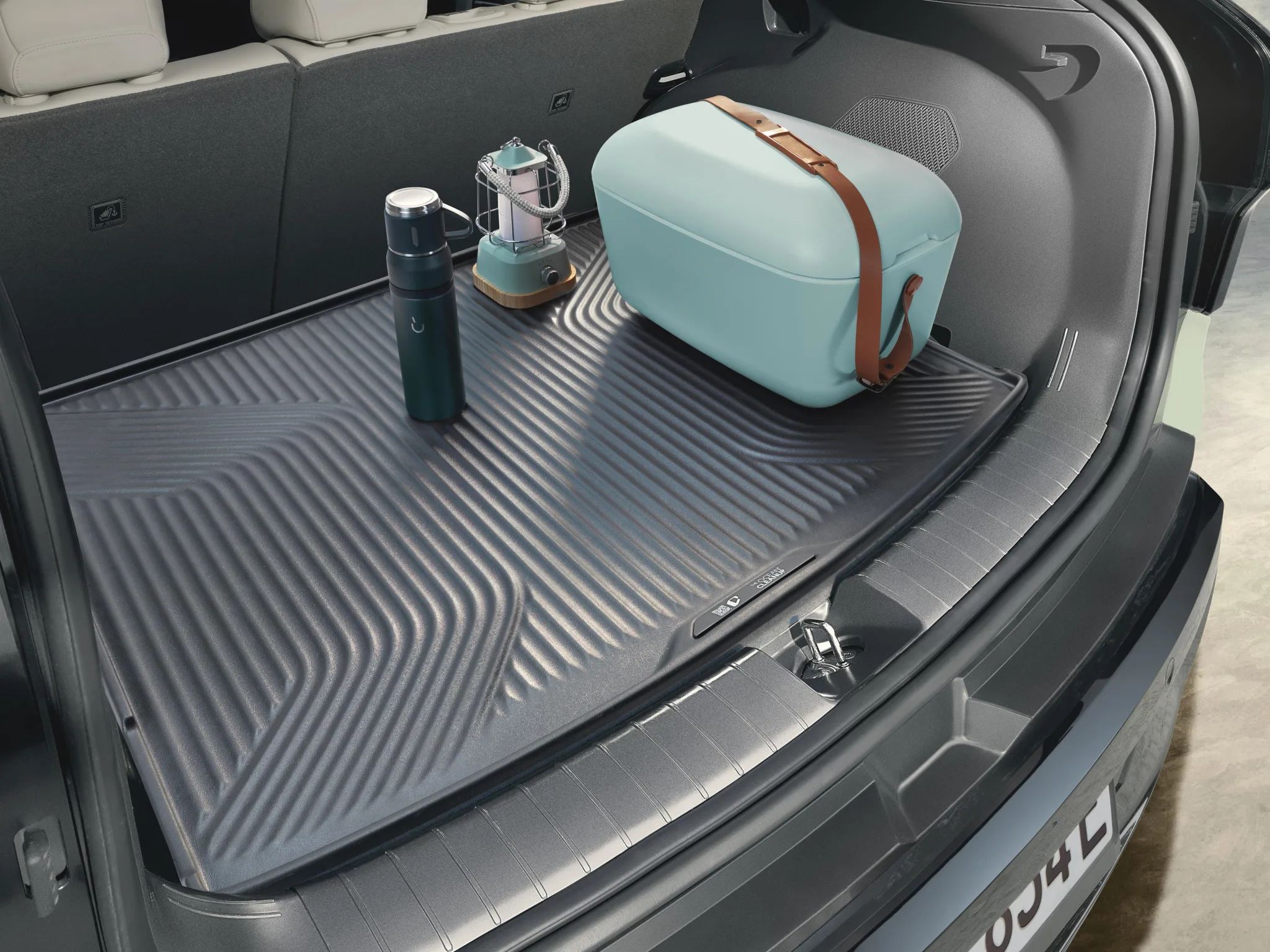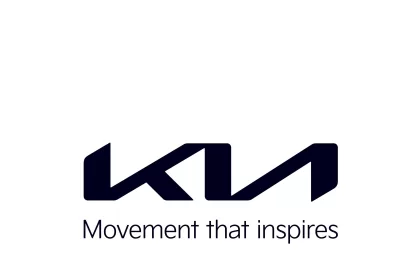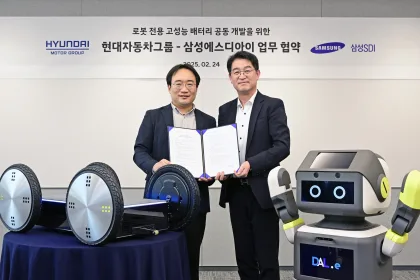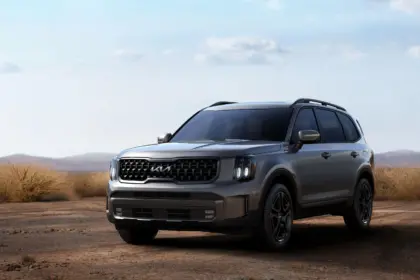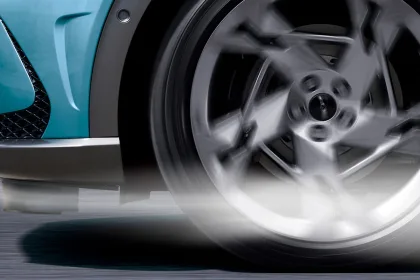- Kia has launched the first-ever car accessory made using plastic extracted from the Great Pacific Garbage Patch by The Ocean Cleanup
- New EV3 accessory highlights Kia’s partnership with The Ocean Cleanup
- New limited-edition trunk liner to be available in selected markets
- Kia to raise recycled plastic application in vehicles to more than 20% by 2030
Kia Corporation (Kia) has developed the world’s first car accessory made from plastic extracted from the Great Pacific Garbage Patch (GPGP) by The Ocean Cleanup. The announcement of the accessory is a major milestone in its long-term partnership with The Ocean Cleanup. Since 2022, Kia’s support of the non-profit organization, which is dedicated to developing and scaling technologies to rid the world’s oceans of plastic, has been a key part of the brand’s ongoing transformation into a leading provider of sustainable mobility solutions.
As one of the most significant outcomes of the partnership so far, Kia will introduce a limited-edition trunk liner for the all-new Kia EV3 made using ocean plastic received from The Ocean Cleanup. The exclusive accessory will be available for EV3 in selected markets and available to order in line with the model’s market introduction.
Charles Ryu, Executive Vice President and Head of the Global Brand & CX Division, Kia, commented: “This partnership is not only a testament to our shared commitment to environmental stewardship and innovation, but a worldwide movement to create a cleaner, healthier oceans for future generations.”
“As the first genuine Kia accessory made using reclaimed ocean plastic, we are proud to see tangible progress made toward creating a circular resource system for ocean plastic. We will leverage the lessons learned during the recycling and product development process to continue to manufacture useful and beneficial products for our customers using ocean plastic retrieved and provided by The Ocean Cleanup.”
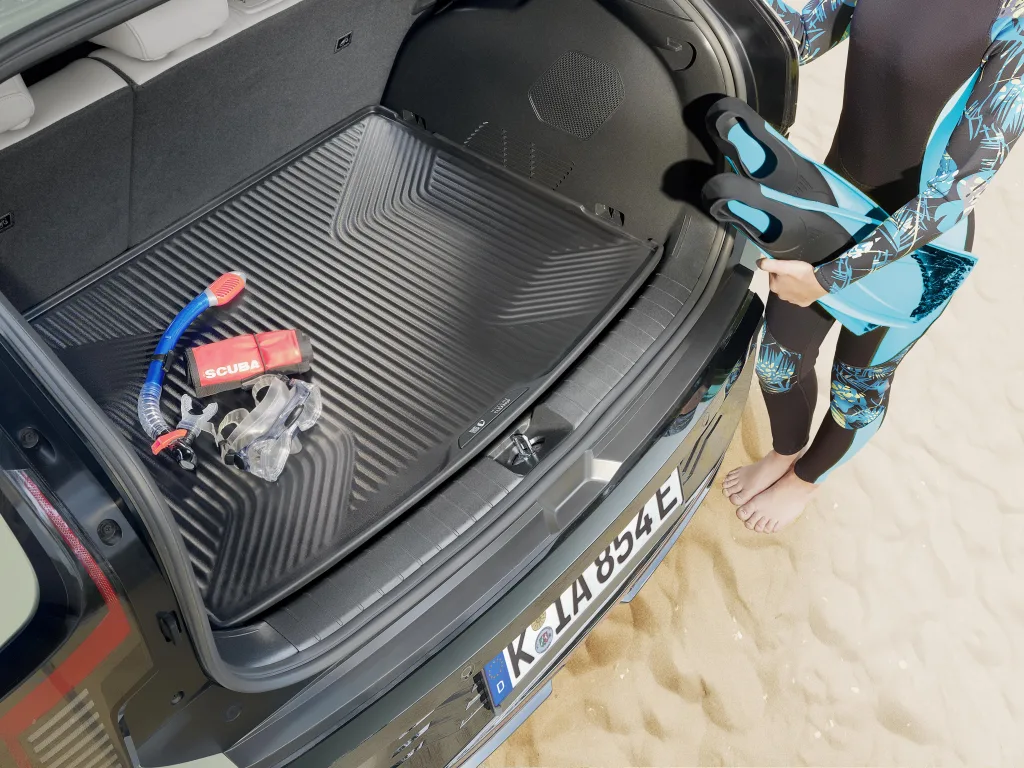
Taking inspiration from Kia’s ‘Opposites United’ design philosophy, the trunk liner’s ‘geometric wave’ top surface pattern is reminiscent of waves and the flow of trash into a collecting area, echoing The Ocean Cleanup’s process for extracting marine plastic. Made with 40% recycled ocean plastic*, the high-quality trunk liner is just as durable, protective and functional as a conventional trunk liner. Each liner also features a QR code, which provides customers with detailed information about the product’s development and the partnership, as well as The Ocean Cleanup logo.
Since the beginning of the seven-year partnership in 2022, Kia and The Ocean Cleanup have worked tirelessly to find innovative ways to transform plastic waste from the GPGP into durable, practical products. Due to the unique qualities of the ocean plastic catch, the first phase involves sorting, recycling, and processing the plastic to meet Kia’s strict quality standards.
Unlike ocean-bound plastic, the Ocean Cleanup’s catch is exclusively composed of materials that were already in the ocean, making it more challenging to recycle. This means that the plastic must undergo a Chain of Custody Standard to verify its traceability and material integrity.
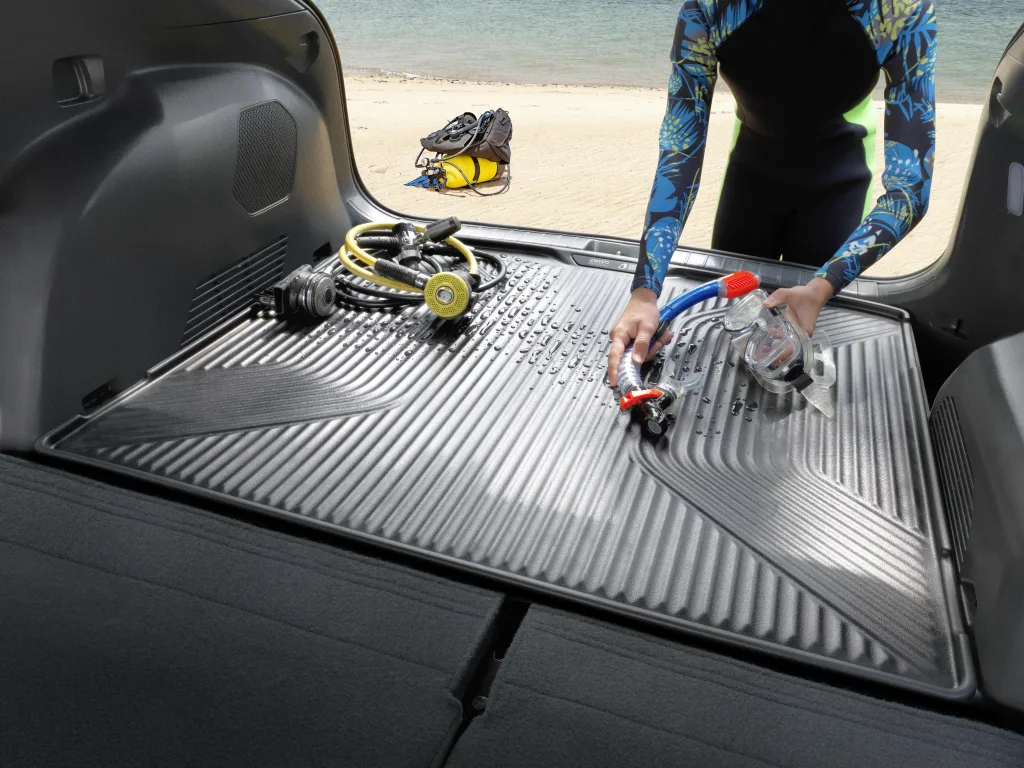
“We are so grateful to have a visionary and passionate partner in Kia, who shares our vision of ensuring that the plastic we extract from the Great Pacific Garbage Patch is given a new life in sustainable items”, said Boyan Slat, Founder & CEO, The Ocean Cleanup. “Our mission is made possible by partners such as Kia and we look forward to this launch being the first of many ways we turn ocean plastic from trash to treasure.”
As part of the company’s ongoing sustainability goals, Kia has proactively integrated recycled plastics and other eco-friendly materials in its latest models. This includes its all-electric flagship SUV – the EV9 – which incorporates recycled fishnets for flooring and recycled plastic bottles for seat fabrics, and the EV6, which uses cloth and matting produced from recycled plastics.
To support its broader vision of becoming a pioneer in sustainable mobility, Kia has pledged to increase the use of sustainable materials in its future products and raise application of recycled plastic in vehicles to more than 20% by 2030, underscoring its commitment to creating a circular resource system for ocean plastic.

